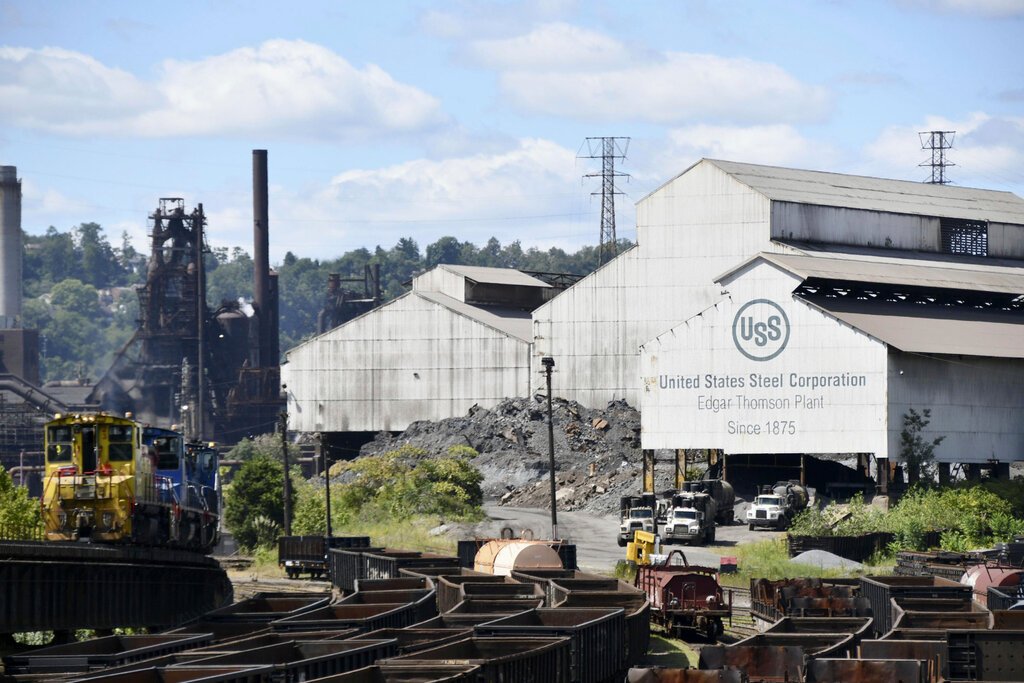President Joe Biden announced on Friday his decision to block the proposed $14 billion takeover of U.S. Steel by Japan’s Nippon Steel, citing concerns over national security. The move, which comes just weeks before the president leaves office, marks a significant departure from the United States’ tradition of open foreign investment and could have lasting economic and diplomatic implications.
“It is my solemn responsibility as president to ensure that America maintains a strong, domestically owned steel industry capable of supporting our national security,” Biden said in a statement. “This action ensures that U.S. Steel remains under American control and continues to serve as a pillar of our strength at home and abroad.”
National Security Concerns
The decision follows months of scrutiny by the Committee on Foreign Investment in the United States (CFIUS), which expressed concerns about the potential risks of foreign ownership of one of America’s largest steel producers. Although CFIUS did not formally recommend blocking the deal, its reservations about declining steel production and the risk of Nippon prioritizing global interests over U.S. investments influenced the administration’s decision.
Biden emphasized that the acquisition could jeopardize critical supply chains and national security, aligning his stance with union leaders and lawmakers from swing states who opposed the transaction.
Political and Economic Fallout
The decision has sparked sharp reactions. Nippon Steel criticized the move as “unfounded and politically motivated” and signaled its intention to pursue legal action. David Burritt, CEO of U.S. Steel, condemned the decision as “shameful,” accusing the president of undermining the company’s future and damaging relations with Japan, a key ally.
“This is a political payoff disguised as national security,” Burritt said in a blistering statement.
Critics of the decision, including Harvard economist Jason Furman, argued that it represents a dangerous precedent of prioritizing political interests over economic openness. “This decision will make America less prosperous and betray our allies,” Furman said.
Unions and Workers Applaud the Move
In contrast, the United Steelworkers union praised Biden’s intervention. Union leaders had opposed the deal, citing concerns about job security, pension commitments, and Nippon’s long-term investment plans.
“We’re grateful for President Biden’s bold action to protect American jobs and our steel industry,” said David McCall, president of United Steelworkers International.
Broader Implications
The decision could deter foreign investment in critical U.S. industries and strain relations with Japan, one of America’s largest investors. The timing of the announcement, in an election year, highlights the political stakes involved, especially as U.S. Steel is headquartered in Pennsylvania, a key battleground state.
While U.S. Steel has faced financial struggles in recent years, the company remains a symbol of American industrial heritage. Founded in 1901, its steel has been used in iconic projects like the Willis Tower and the United Nations headquarters. However, its workforce has dwindled from 340,000 at its peak to about 20,000 today.
What’s Next for U.S. Steel?
The future of U.S. Steel remains uncertain. Nippon had promised significant investments and to maintain the company’s headquarters in Pittsburgh, but with the deal blocked, U.S. Steel’s leadership has warned of potential layoffs and restructuring.
The company has received other takeover offers in recent years, and it remains to be seen whether a new bid will emerge or if the blocked transaction will prompt a shift in strategy.
Pennsylvania Governor Josh Shapiro called on U.S. Steel to honor its commitments to workers and communities. “I expect any future buyers to match the strong commitments Nippon Steel made to protect and grow Pennsylvania jobs,” he said.
As the debate over U.S. Steel’s ownership unfolds, the decision to block Nippon’s bid underscores the tension between national security, economic interests, and political realities in a globalized economy.
